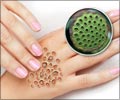A person with Angelina Jolie Syndrome takes possible attempts to prevent even hypothetical diseases that they may not even be at risk for.

‘Angelina Jolie Syndrome is a part of healthism, which includes diet trends, fitness, plastic surgery, organic food and apps that monitor health.’





But even simple concerns about the 'standards' of physical condition may provoke hypercorrection, such as surgery on a healthy body, said Evgenia Golman from the HSE Faculty of Social Sciences Department of General Sociology, Angelina Jolie syndrome has been frequently mentioned in the media recently, implying increased attention to the probability of dangerous diseases. This results not only in the vigilant monitoring of health, but also in possible attempts to prevent even hypothetical diseases, including by means of surgery on a healthy body.
The famous case of the actress, who underwent a preventive mastectomy, is symptomatic of this obsession and fits into the healthism concept. More widespread displays of healthism include the boom in diets, fitness, plastic surgery and organic food, as well as the popularity of mobile apps for health monitoring.
Such 'body worship' is extensively supported by beauty salons, manufacturers of bioactive supplements and 'superhealthy' food, fitness and yoga centers, and, ultimately, even healthcare officials in many countries.
Popular healthcare policy today often shifts the responsibility for health from healthcare institutions to individuals themselves, and shifts the focus from treatment to prevention, including prevention of even purely hypothetical pathologies, Golman explained in her paper.
Advertisement
The most dangerous thing is that such an approach stigmatizes everything that doesn't fit in with the model of a 'healthy lifestyle'. Social expertise is needed for healthist discourse, the researcher concluded. It's necessary to study the controversial possible effects of such ideas. There is a high risk that the intrusive propaganda of a 'healthy lifestyle' will negatively influence socially vulnerable demographic groups and discriminate against them.
Source-ANI













